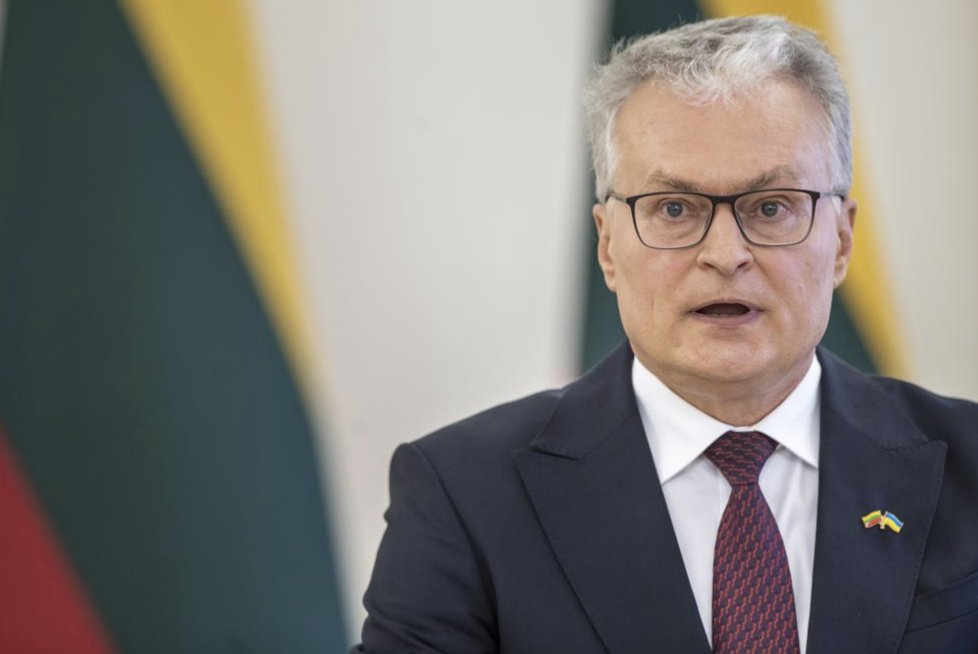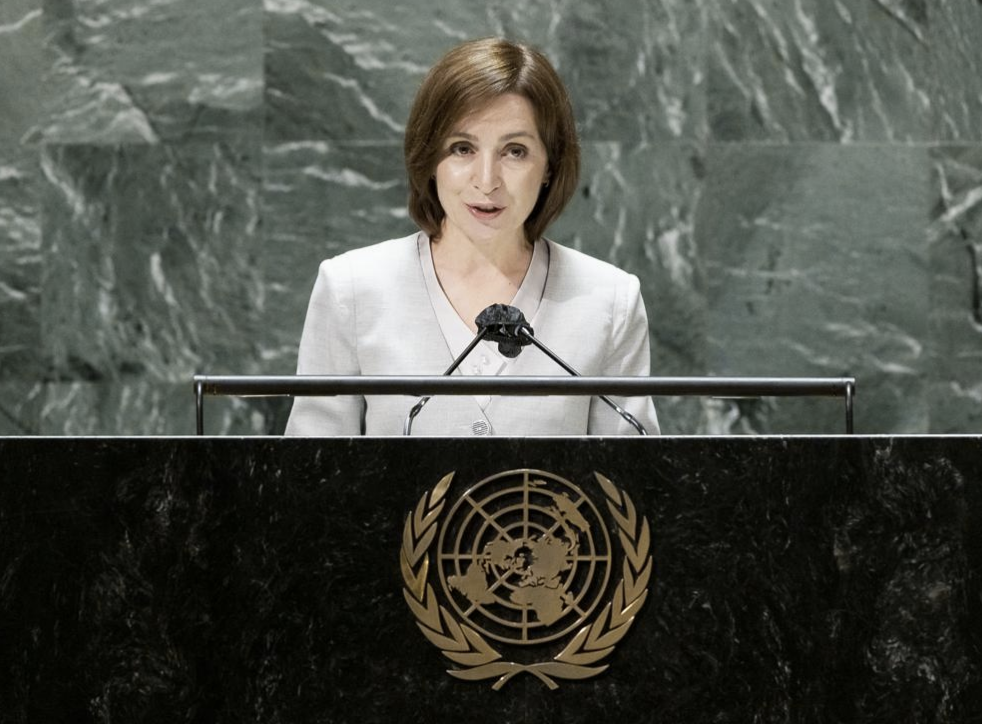Moldova and Lithuania Ban "Symbols of Russian Aggression"
Lithuanian President Gitanas Nauseda speaking at a media conference at the Presidential palace in the Lithuanian capital Vilnius on March 21, 2022, after being the first European nation to cut itself entirely off from Russian gas imports. Photo: Mindaugas Kulbis/ Associated Press
On April 19, Lithuania and Moldova enacted laws that banned the usage and display of “Symbols of Russian Aggression,” which include the letter 'Z' painted on many Russian military vehicles invading Ukraine, the black and orange ribbon of St. George which became a popular symbol to support Russia when the nation invaded Crimea, along with other symbols that may be perceived to be in support of Russia in their invasion of Ukraine. The decision comes in anticipation of the May 9 victory parade that has gone from celebrating the Soviet Union's victory in World War Two to a tool of Russian propaganda in support of Vladimir Putin and his government's policy decisions.
In addition to banning the letter “Z” and the ribbon of St George in Lithuania, which was preceded by a ban on Soviet and Nazi symbols in the country, the parliament added a new provision for “the symbols of totalitarian or authoritarian regimes used in the past or currently used to promote military aggression, crimes against humanity and war crimes committed or perpetrated by them.”
Lithuanian lawmakers approved an increase in the fines for breaching the symbols ban up to 900 euros per person and 1,500 euros per company. The decision to ban these symbols comes after a call from Ukrainian Foreign Minister Dmytro Kuleba at the end of March for a full and unilateral ban of the political use of the letter “Z,” saying it represents Russian aggression and justifies the deaths of Ukrainians at the hands of the Russian military in Ukraine.
The decision to ban these symbols in Moldova has not been met with full support as the nation is extremely polarized, with one side supporting European integration and the other supporting the close relationship with the former Soviet bloc and Russia. The black and orange ribbon of St. George had been previously designated as a symbol of Soviet victory over Nazi Germany in World War Two, and former Moldovan presidents Igor Dodon and Vladimir Voronin have adopted its use and have worn them to previous May 9 victory parades.
Former President Dodon and his Socialist party allies have announced they will ignore the ban on May 9. “The fines, if the authorities still resort to this step, we will all go, tens of thousands of people, and we will hand them over to Natalia Gavrilița and Maia Sandu,” Dodon said on a Moldovan news channel.
Moldovan President Maia Sandu addressing the General Debate during the 76th session of the United Nations General Assembly on Sept. 22, 2021, at the UN headquarters in New York City. Photo: Justin Lane/ Photo Pool via Associated Press
Former Moldovan President Igor Dodon continued and criticized Moldovan President Maia Sandu for signing the ban into law, accusing her of “fighting symbols instead of poverty.” However, Lithuanian MP Monika Ošmianskienė disagrees with this idea. On Facebook, she said the new law was “absolutely necessary to ensure [Lithuania's] national security.” She added that the ban is more than a war against symbols, but is “an important preventive step because Russian war propaganda is not tiring and is looking for all sorts of ways to distort our people,” which leads to the poverty that Dodon believes should be fought.
Estonian Ambassador to the United States Kristjan Prikk warns that further inaction in the war will lead to a disastrous outcome in the near future and that “if we settle again after a disastrous war without a clear sense of who is the aggressor and who is the victor, and how the aggressor should be punished, Russia will regroup, develop new capabilities. We will have considerably bigger problems in a couple of years.”


